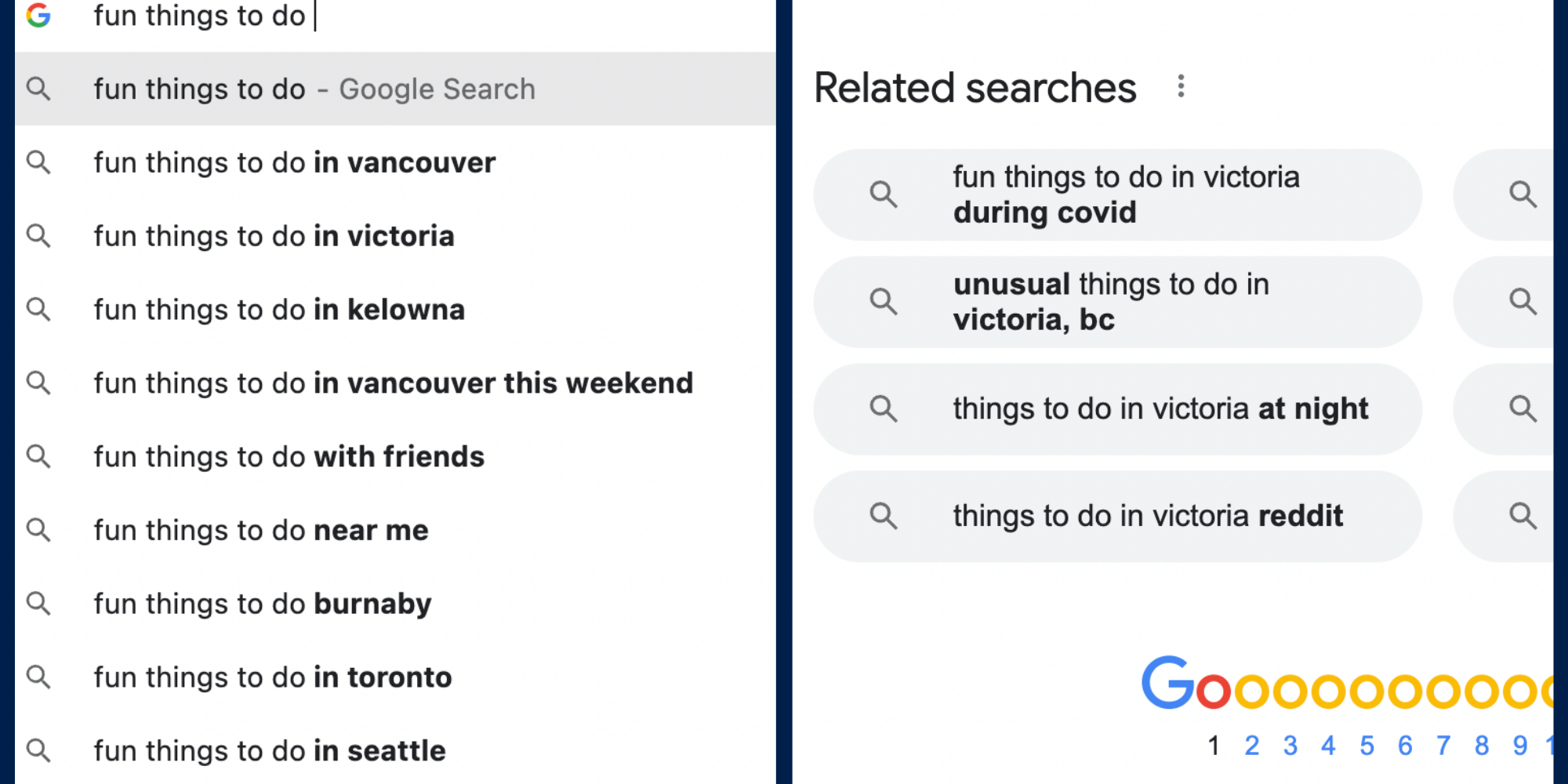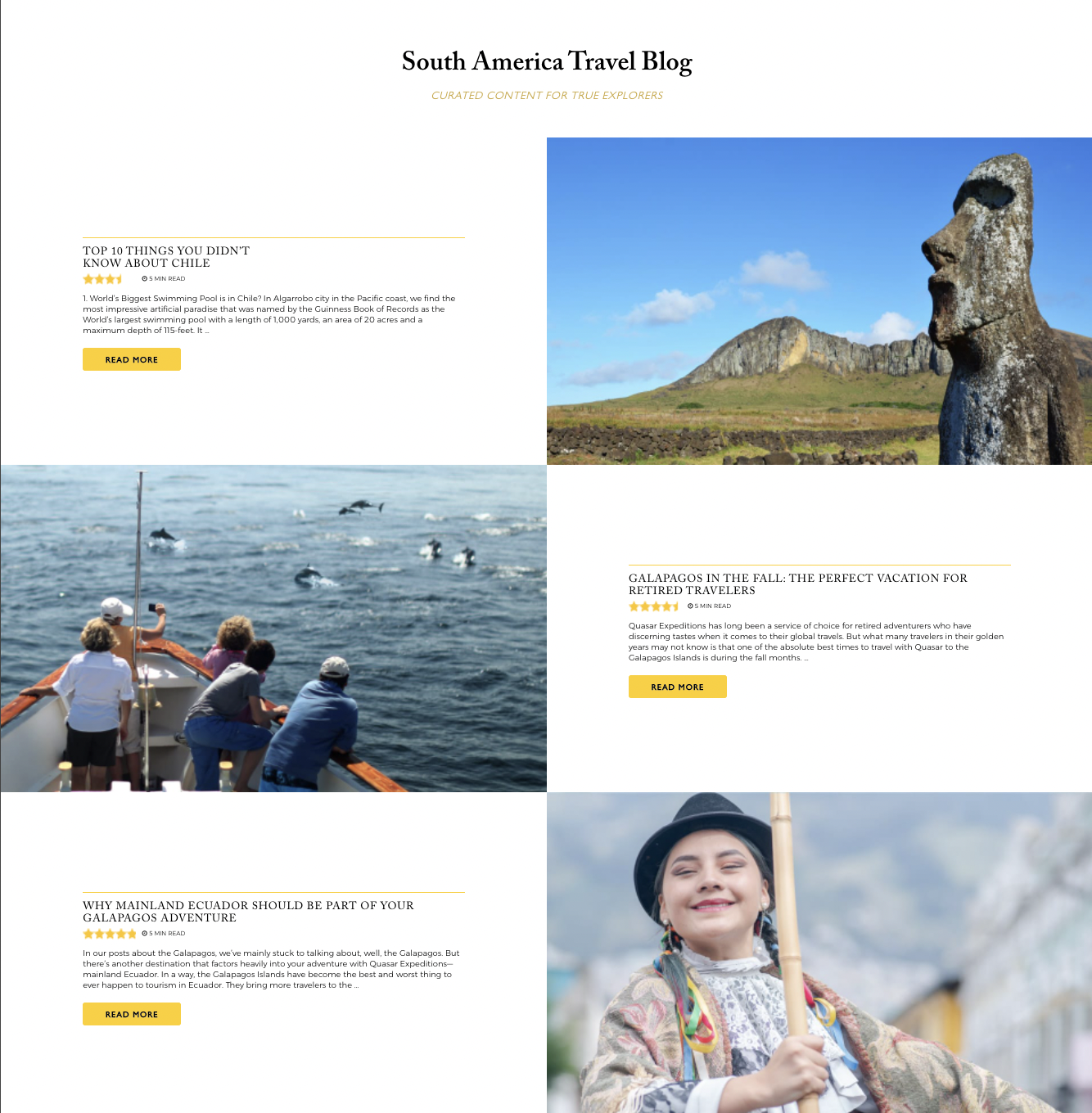Content Marketing Tips for Tour Operators

What is Content Marketing & How it Drives Traffic?
Content marketing is all about creating engaging web-based material that drives an audience to your website. In other words, it’s storytelling about your products and industry to grab customers’ attention, increase page views, and get more bookings.
The concept of content marketing is nothing new. You are familiar with brochures, magazines, and newspaper ads, which are, in fact, offline content marketing activities that pre-date the Internet. As the marketing initiatives moved online, website copy, blog posts, podcasts, infographics and videos have become part of content marketing.
The purpose of content marketing is that when your customers search online for anything related to your business, they find you, learn more about your business, and ultimately becomes your customer.
So, where do you begin with content marketing?

Set your Goals: As with any marketing strategy, begin with deciding the goals you want to achieve. For tour operators, in most cases, it will be to increase their brand awareness and get more bookings. Adapt your content marketing strategy to fit these goals.
Define your Target Audience/Personas: The customer profile of adventure tours is different from that of family fun tours. Know your customers and curate content for them. You should direct the time and money you invested toward the right group of audience. If you know your target audience, you can create content that speaks to them and connect with them (More on creating personas for your business here).
Create a Content Calendar: Planning is the safe game in content creation. It's best to create a content calendar that gives you a timeline of content to be published. With an editorial calendar, you can schedule blog and social posts weeks in advance instead of scrambling for ideas at the last minute.
There are several scheduling tools, such as Airtable and Trello. If you don't want to invest in any, you can use Excel or Google sheets to create a content calendar or use preexisting, free templates available with a simple search.
There are tons of content formats tour operators can use—blogs, podcasts, guides, ebooks, videos, infographics, and the list goes on. Depending on your goals, budget and resources, pick the ideal formats for your tour business. We will walk you through the essential areas that tour operators cannot afford to ignore.
Content Marketing: Key Areas Tour Operators Should Focus
Website
Your website is the central hub of your content marketing initiatives. Every piece of content you create directs your customers back to the website to get more information, check your credibility, or make a booking.
Engaging, attractive website content is inevitable when they land on the website to create a great first impression. A fast-loading, mobile-responsive website with user-friendly navigation makes your content and Call to Actions (or, “Book Now” buttons) easily accessible to guests.
Ensure the website is optimized for SEO so that travellers find you when they search online for experiences and tours. Simple steps like adding alt text for all images and providing captions for videos and images make a difference.
Add reviews and ratings to the website. They keep your content fresh and help you stay on top of the Google Search as the search giant always favours an active website.
Blogs
Besides providing guests with valuable, relevant travel-related information, posting blogs regularly updates your website, giving you better Google rankings. You might be shocked to see that blogs can become some of the most visited pages on your website and a great opportunity to provide value to your potential customers on their first impression of your brand.
Optimize the blog content for relevant search queries so that you have answers to the most common travel-related questions from your potential customer.
Mix up your blog section with short and long-form content and easy-to-read infographics. It's no secret that long-form articles perform better on search engines. However, do not create blogs for the sake of it because bounce rates may harm your rankings.
Wondering what to write in your travel blogs? We will talk about it in a little bit.
How to Find Keywords: A Quick Primer
Content marketing revolves around SEO, and keywords are crucial for SEO. You can use Google search itself to get ideal keywords and even content ideas. Type your topic into Google and refer to the suggested searches. Go through the top-ranking pages to gain deeper insights. Also, look at the related searches displayed at the end of the page. You will get a better idea of the most common search queries.
If you want to invest more in SEO, you can use several tools such as Semrush, Ahrefs, and Ubersuggest. Answer The Public is another tool that lists out every useful phrase and question people ask around your keyword.

Social Media
Your active presence on social media supports and complements your content marketing initiatives. Posting engaging content on social media attracts more customers to the website and gets them closer to the booking stage. Social media also gives you free access to the target audience and an opportunity to listen to customers' conversations and connect with them.
Struggling to come up with a social media strategy or what to post daily? We have covered the essential social media marketing tips for tour operators here.
Other Content Formats
Video content: 55% of consumers use videos for purchase decisions. The popularity of videos is no secret, and it is a powerful tool for tour operators to showcase tours, experiences, and activities they offer. Even a short video recorded on the phone can excite your future guests.
Email marketing: You can also explore email marketing to expand your content marketing. With email marketing, tour operators can reach out to guests and future customers on a massive scale. It is also an opportune moment to engage with them on a personal level. Learn more about how to use email marketing to win more guests here.
Podcasts: The new big thing in marketing! However, whether to adopt it or not entirely depends on your business goals, target customers and resources. It may not be possible to consistently create high-quality episodes when you have a small team.
What Should Tour Operators Write About?
The rule of thumb is to think like your potential customers. What will be customers' queries when it comes to tours and activities? What information will a future customer look for? What are their interests? What do you want them to know about your tours, activities, or transportation offerings? Your content should answer these questions.
For example, one of the most common search enquiries in the travel sector is things to do at a destination. People often look for seasonal activities/things to do. Searches for a winter vacation in have grown globally by over 800% year over year.
Here are some tips for planning travel content for tour operators if strapped for content ideas.
Tips & Tricks: Add value to their customer journey. Write about travel trips on your blogs, providing them with all the information they need. Sometimes customers need help with their trip planning. Create a handy guide on your destination, explaining how to spend a day or things to do in a destination. Add blog posts on how to package their trip. Ask your guides to contribute their valuable tips for their guests.

Informational Topics: Trigger excitement and amusement about your destination by sharing interesting history, fun facts or never-heard-before stories of the area. Besides attracting new readers, other travel websites may backlink to your interesting stories, which is good for SEO.
User-Generated Content: For travel operators, user-generated content is a goldmine. Photos, videos, and reviews by your previous customers speak for themselves. They trigger travellers' imaginations and tempt them to book their next trip with you. You can learn more about leveraging user-generated content here.
Live Video: 15 percent of U.S. adults aged 18 to 34 watch live stream videos several times a day. With smartphones and social media, live streams are now easier to do and more powerful than ever. Give them a glimpse of your tour or activity. You can also live steam the experience you offer. Or even walk around your destination showcasing its highlights.
Competitors’ Content: Research your competitors and other global tour operators who do a good job with content marketing. Check out their blog posts, website copy, and social media posts. Look for tips to improve your content and also for inspiration. Also, keep an eye on the comment sections of social media and blog posts. You will come across questions asked by travellers. Reddit and Quora can also be good sources to know what travellers talk about and their interests.
Meet the Team: Introduce your team on your blog posts and social media, building a personal connection with your audience. Share your memories or personal stories about the destination or your tours. It’s easier for travellers to buy from people they connect with.
Conclusion
A goal-driven content marketing strategy gets your brand and product in front of global travellers, makes them want to know more about it, builds your credibility as a modern travel experience provider, and creates excitement for future travellers about your activities or your destination. Consistently providing valuable and relevant content makes it easier for your potential customers to find you.
Remember, it is a long-term strategy. You may not see results immediately. However, in the long run, it can be more effective than your paid marketing efforts.
Regularly review metrics and KPIs. Use free tools such as Google Analytics and Google Search Console to understand the flow of traffic to your website and the best-performing content. The data-driven content strategy helps you analyze what’s working and what’s not so that you can tweak your strategy accordingly.
Related Posts

Zaui’s New Booking Policy Toolkit: Flexible Cancellations, Smarter Revenue Protection
Should you add a booking fee? Discover how this strategy can impact your revenue and customer satisfaction in our expert analysis.

Passing Booking Fees: A Smart Revenue Strategy or Customer Turn-Off?
Should you add a booking fee? Discover how this strategy can impact your revenue and customer satisfaction in our expert analysis.

How to Start a Tour Business in 2025: Practical Guide
Starting a tourism business is an exciting journey into a landscape full of potential. Travellers are always looking for new adventures, and there is no shortage of niches to explore in the tourism industry. The question is: how do you carve out your place in this vibrant sector?


Frequently Asked Questions
No. Zaui’s pricing is fully pay-as-you-go. You aren’t locked into any long-term contract. In fact, leading platforms emphasize this flexibility. Similarly, Zaui lets you start and stop anytime. You can change or cancel your plan freely, so you only pay for what you use.
Absolutely not. Zaui’s pricing is 100% transparent. We disclose all fees up front with no surprise add-ons or “sneak-in” charges. In fact, Zaui’s plans include all core features “without additional fees”. Industry experts note that hidden fees undermine trust so we avoid them entirely. All costs are clearly outlined in our pricing, and there are no extra setup charges or undisclosed surcharges at checkout.
Zaui integrates with major payment gateways (e.g. Stripe) so you only pay standard credit-card processing rates (roughly 1.9%+$0.30/transaction) and we don’t mark them up. Only the published platform commission is added on bookings. You also have full control over who pays the commission, we let you decide whether to absorb booking fees or pass them on to customers. In short, you’ll only pay the transparent booking commission and normal gateway fees, nothing extra.
Your onboarding and support are included in the price. We provide white-glove setup help and ongoing 24/7 support at no additional cost. Our dedicated customer-success team will guide you through every step, ensuring a smooth launch. You won’t pay extra for training or service other than the onboarding fee; it's all built into your plan.
You can schedule a free demo with our team. Our Zaui ninjas will walk you through pe how Zaui can work for your business and highlight opportunities to grow with our advanced features all without any upfront payment. This way, you can feel confident it’s the right fit before making a commitment.
Of course. Zaui’s plans are fully flexible. You can upgrade or downgrade at any time to match your needs, without penalties. You can move to a higher tier or back down easily, and your billing adjusts automatically.
No. Zaui does not charge its commission on offline/manual bookings. “No fees on offline bookings” You only pay the commission when a booking is processed online through our system. Manual reservations (or bookings from partner channels we set up for you) incur no extra platform fee. (30% or less)
All of Zaui’s core features are included in your plan at no extra charge. We believe in value and transparency: Zaui provides over 15 advanced features (Google Things to do, reporting tools, marketing tools, reports, etc.) at no additional cost. Many competitors charge extra or require higher plans for the same features, but with Zaui you get the full suite of tools in one package. Any optional add-ons (if any) will always be clearly listed and optional there are no surprise paid upgrades for standard features.
Each Zaui plan is designed for clarity and fairness, following industry best practices. You can trust that our pricing is transparent and flexible, with the support you need built in.
Extra accounts- unlimited agents, resellers, user



